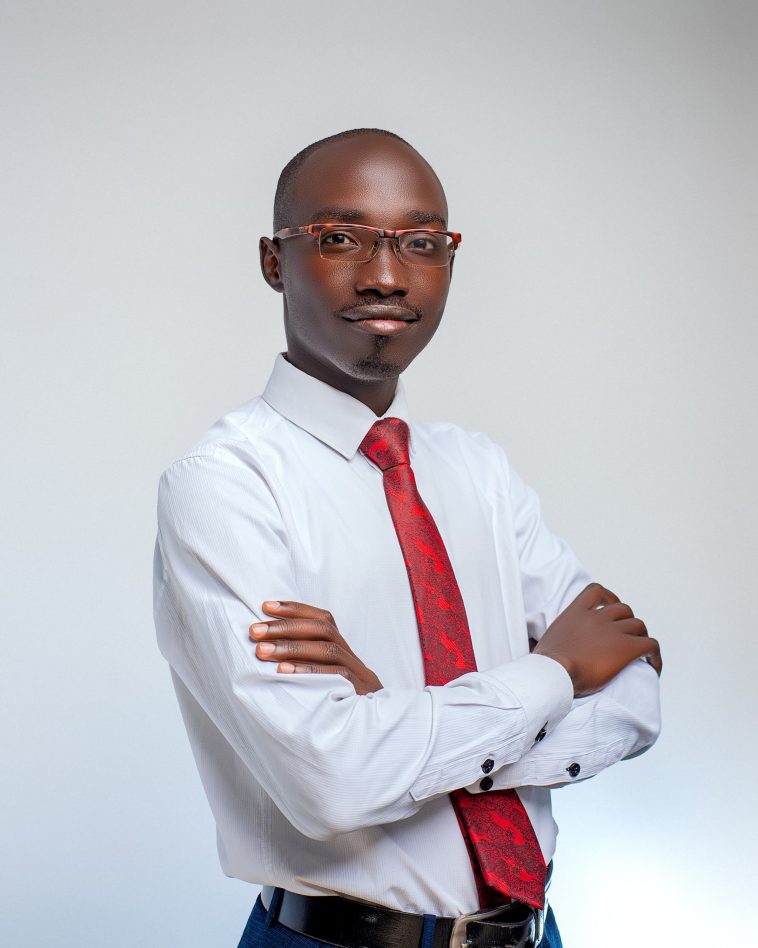The Democratic Republic of Congo, the land so rich that it could feed an entire continent, yet so cursed that its children die with empty stomachs. A country where the soil groans under the weight of untapped gold, diamonds, and Colton yet its people rot in mass graves, forgotten by the very world that thrives on their suffering. The irony is unbearable, the hypocrisy nauseating. For over a century, Congo has been stripped, raped, and bled dry first by colonial masters in neatly pressed suits, then by warlords in bloodstained fatigues, and now by foreign corporations hiding behind “investment” deals that read like modern-day enslavement contracts. The only thing that changes is the uniform of the plunderer.
While the world’s elite sip champagne in skyscrapers built with Congolese minerals, the people of Eastern Congo choke on the dust of war. More than 100 rebel factions prowl its forests, a demonic orchestra of terror, raping, slaughtering, and displacing millions. They are not rogue elements; they are well-fed, well-armed pawns in a deadly game played by invisible hands, regional power brokers, multinational corporations, and global profiteers, all trading blood for resources. M23, ADF, Mai-Mai… the acronyms may vary, but the suffering remains the same. A mother buries her son today, just as her grandmother did decades ago. Children born into conflict grow up knowing no lullaby other than the sound of gunfire.
The DRC is not at war with a single enemy it is under siege by a dozen. Among them, its own neighbors, Rwanda and Uganda, masquerade as stable states while playing puppet masters to the chaos next door. Rwanda, the West’s golden child, parades itself as Africa’s miracle efficient, progressive, disciplined. Yet behind the polished image lies a darker reality: a regime with bloodstained hands, accused time and again of fueling the M23 insurgency. Uganda, another eager participant in this deadly theater, was even slapped with a fine by the International Court of Justice for its role in Congo’s misery. But what is a fine to a looter when the vault is still open?
The aftermath of the 1994 Rwandan genocide reverberated violently throughout Central Africa, but none more so than in the DRC. Following the Rwandan genocide, a massive exodus of over two million Hutus, including genocidaires and ordinary civilians, flooded into neighboring countries, with a significant number of them settling in the DRC’s eastern provinces. The influx of Hutus, including those responsible for the genocide, into the DRC put the country directly at odds with Rwanda, which was determined to eliminate the remnants of the genocidal regime. Ethnic tensions between local tribes, Tutsi refugees, and Hutu militias soon escalated, further stoking the fires of a conflict that seemed impossible to contain. The assassination of Mobutu’s regime, in which Rwanda played a decisive role, ultimately paved the way for Laurent-Desire Kabila to seize control, but the chaos only intensified.
The First Congo War, ignited by the Rwandan-backed Alliance of Democratic Forces for the Liberation of Congo (AFDL), saw the defeat of Mobutu’s government and the establishment of Kabila’s rule in 1997. When Kabila fell out with Rwanda, his decision to expel foreign troops, including those from Rwanda, only exacerbated the tensions. Ethnic groups living in the DRC, particularly the Tutsis, once again found themselves at the mercy of local militia groups and government forces. The eruption of the Second Congo War in 1998 further fragmented the country. Rwanda’s backing of rebel groups like the Rally for Congolese Democracy (RCD) and Uganda’s support for the Movement for the Liberation of Congo (MLC) ensured that the DRC became a battleground for regional powers, each with their own interests in the country’s vast resources.
Although we cannot blame the world for all of DRC’s misfortune, the world has played a much bigger role in it. Mobutu Sese Seko, who ruled from 1965 to 1997, was not exactly a beacon of democracy and human rights. Under his reign, the country was looted, its resources exploited, and the people oppressed. After Mobutu’s fall, the country spiraled into chaos with the Second Congo War, a brutal conflict in which over 20 armed groups fought for control of the country’s resources. Since the year 1998, an estimated 6 million people have been killed due to violence, war, and disease directly linked to the Congolese conflict. Six million. That’s almost double the number of people who died in the Vietnam War. And for what? So that foreign companies can buy up cobalt at a price that’s practically a steal, so that they can power the world’s electric cars and smartphones. This country is practically a mine with people living on top of it and dying for it.
Let’s be honest who really cares about millions of dead Congolese when the world can shed collective tears over a few thousand casualties elsewhere? The Holocaust (1939–1945) 6 million Jews slaughtered rightly recognized as one of the worst crimes against humanity. Never forgotten. The Bosnian War (1992–1995): Around 100,000 killed prompted international outrage, NATO bombings, and high-profile war crimes trials. The Rwandan Genocide (1994): 800,000 people slaughtered in 100 days at least the world had the decency to feel guilty after letting it happen. The Syrian Civil War (2011–present): Over 500,000 dead, prompting media frenzy, refugee sympathy, and billions in humanitarian aid. The Ukraine War (2022–present): Tens of billions of dollars in military aid within months, sanctions, international tribunals, and endless Western media coverage.
Now, compare all that to the conflict in Congo and its aftermath over 6 million dead. Yes, you read that right. SIX MILLION. More than Bosnia, Rwanda, Syria, and Ukraine combined. Yet, where are the global protests? Where are the emergency UN sessions? Where are the hashtags and celebrity tears? Oh, that’s right, Congolese lives don’t make for sexy headlines. M23, the FDLR, ADF, Mai-Mai militias, Nyatura death squads the alphabet soup of terror in Eastern Congo makes ISIS look like amateurs. Every day, villages are burnt, women are raped, children are conscripted into militias, and bodies pile up. But hey, as long as the Colton mines keep supplying Western tech giants, why should anyone care?
The country has endured one of the deadliest conflicts since World War II, a silent holocaust that has claimed millions of lives and displaced countless more. And who suffers the most? The women. The children. The forgotten. Women’s bodies have become battlegrounds, their dignity stripped away in a war where rape is not just a crime it is a strategy. Children, some too young to write their names, are handed guns instead of books, molded into killers before they even understand life. The elderly, the sick, the innocent none are spared. They are collateral damage in a war fought not for freedom, not for justice, but for minerals they will never see and wealth they will never touch. And while Congolese children hold rifles instead of pencils, in Paris, New York, and London, life goes on. Coffee is sipped from cups bought with Congolese gold. Texts are sent on phones powered by Congolese Colton. Electric cars glide silently through the streets, their batteries charged with Congolese cobalt. The blood behind these luxuries? Conveniently ignored.
The world has every report, every satellite image, every testimony it needs to act. And yet, it turns away not out of ignorance, but out of convenience. Because justice, it seems, is only served when it does not interfere with profit. Where is the United Nations? Where is the African Union? Where are the self-proclaimed defenders of democracy and human rights-the Western powers that never miss an opportunity to lecture the world? The world’s silence on Congo is not just indifference-it is complicity. The hypocrisy is grotesque. One European country is invaded, and it’s a global emergency. Millions of Congolese butchered over decades? Just another day in the jungle.
Enough of this disgraceful apathy, enough of the empty rhetoric, enough of the cowardice dressed as diplomacy! The African Union must stop being a spineless club of political elites and take real ownership of Africa’s deadliest war. The United Nations must do more than issue meaningless reports while its so-called peacekeepers watch massacres unfold. The European Union, the United States, France, the UK those self-proclaimed defenders of human rights must stop selectively caring about human suffering only when it suits their political or economic interests. If they can mobilize billions overnight for Ukraine, they can damn well do the same for Congo. The world has the power to end this stupidity once and for all; cripple the warlords, sanction Rwanda and Uganda for their blood-soaked interference, dismantle the corporate greed that fuels this slaughter, and enforce a genuine peace. Failure to act is complicity. Every raped woman, every orphaned child, every corpse left rotting in Eastern Congo is a testament to a world that has chosen to look away. But history remembers. And when the judgment of time comes, no one will be able to say, “We didn’t know.”
The author is a lawyer and an advocate for Human Rights and good governance
This post was created with our nice and easy submission form. Create your post!







